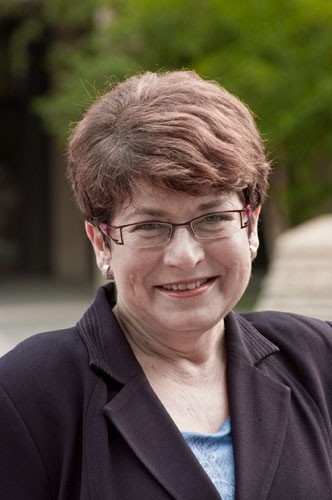Wondering where Winnipeg’s women are
Mayoral candidate Judy Wasylycia-Leis seeks to increase the political representation of women
Hope is rising among local experts and community groups that mayoral candidate Judy Wasylycia-Leis, a veteran politician and long-time advocate for women, will help correct the under-representation of women on Winnipeg’s city council and within municipalities across Manitoba. But even if she manages to take the top job, they warn, one city mayor cannot reverse a strengthening political trend.
According to the Association of Manitoba Municipalities (AMM), only 23 per cent of Canadian city councils are made up of women. In Manitoba, women make up 17 per cent of municipal representatives and in Winnipeg there are currently only two women out of 15 city councillors.
“City council is a closed shop,” said Arlene Draffin Jones, a nurse and vice president of the Council of Women of Winnipeg, a local organization committed to civic education. “Apathy (due to lack of access) causes the same people being elected over and over again.”
Draffin Jones, 71, has a lengthy resume of community activism in the city’s core. She ran as a candidate for city council in the 2006 election for the Mynarski ward, a district that spans Winnipeg’s North End and is home to over 39,000 people.
Although Draffin Jones received about $9,000 in campaign contributions from individuals and several community groups, she was ultimately running against three other “progressive” candidates and a strong incumbent with name recognition. She also lacked the endorsement of a provincial political party or wealthy business group.
Ultimately, when the polls closed on October 25, 2006, Draffin Jones came second to Coun. Harry Lazarenko, who has served the city since 1974.
“I have lived in the North End for over 30 years and we have problems with safety, a loss of businesses and the depletion of our infrastructure,” she said. “A lot of people see a name that’s familiar and that’s all they know.”
“ City Hall should be the level of government where we have the highest number of women represented.
Judy Wasylycia-Leis, mayoral candidate
According to many, Draffin Jones’s experience has become indicative of the many challenges facing women running for election at the municipal level.
Shannon Sampert is a politics professor at the University of Winnipeg. She believes that although political parties have been instrumental at getting women involved at the federal and provincial levels of government, it becomes a struggle for many women to fund municipal campaigns without a party structure.
“When women run against incumbents it is even more difficult ... there is no centralized party to provide women candidates with money or support,” she said.
The lack of political parties wouldn’t be such an issue if groups and individuals received tax breaks for municipal campaign contributions, she added. However, according to the campaign expenses and contributions guide for the City of Winnipeg, any contributions made to a candidate are not tax-deductible to the contributor.
“For many people, they would give $150 (to a city campaign) if they knew they would get $75 back in taxes,” Sampert said.
Mayoral candidate and long-time NDP politician Judy Wasylycia-Leis maintains that, while the absence of political parties is a problem for women, what ultimately discourages them from municipal involvement is the way business is done at City Hall.
“City Hall should be the level of government where we have the highest number of women represented,” she said. “If we can turn City Hall into a family-friendly environment and open up a dialogue with women ... I think that will make a huge difference.”
While Wasylycia-Leis believes that a female mayor can inspire increases in the participation of women and that a top-down approach is needed, others starkly disagree.
“I believe it has to come from the community and the grassroots,” said Coun. Russ Wyatt of Transcona, who has been a city official for eight years and sits on an AMM committee looking at how to increase the participation of women in municipal politics.
He believes that the mayor can personally do very little without grassroots support.
“You’re not going to get a top-down approach to this issue,” he said.
Published in Volume 64, Number 26 of The Uniter (May 27, 2010)







